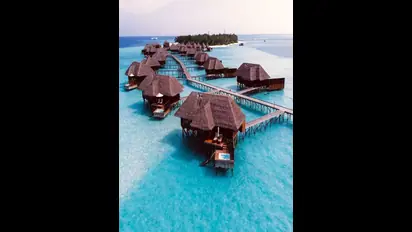7 countries without rivers: How do they survive?
Published : Sep 14, 2024, 04:19 PM IST
Did you know that there are countries without rivers? This article explores how these nations, including Saudi Arabia, Qatar, and others, meet their water needs through innovative solutions like desalination, groundwater management, and rainwater harvesting.
Check the Breaking News Today and Latest News from across India and around the world. Stay updated with the latest World News and global developments from politics to economy and current affairs. Get in-depth coverage of China News, Europe News, Pakistan News, and South Asia News, along with top headlines from the UK and US. Follow expert analysis, international trends, and breaking updates from around the globe. Download the Asianet News Official App from the Android Play Store and iPhone App Store for accurate and timely news updates anytime, anywhere.
